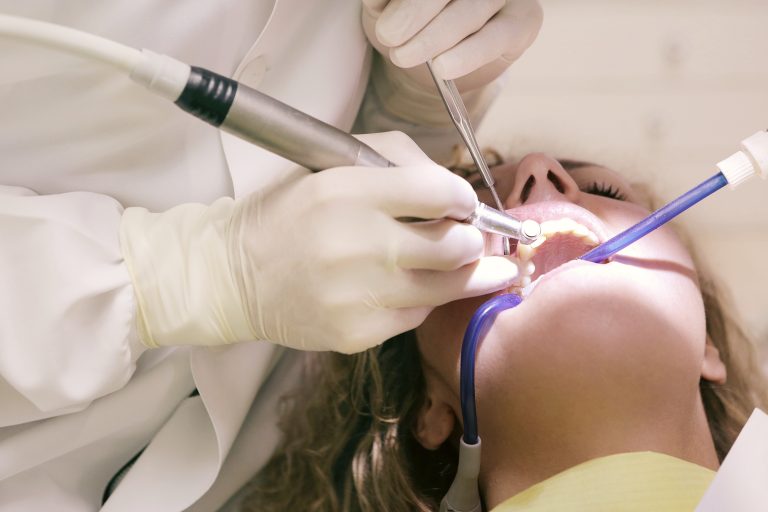Scaling is one of the most common dental procedures that is carried out at the dental clinics. It is the removal of plaque and/or calculus (tartar) from between and around the teeth. It also extends below the line that separates the gum from the visible part of tooth (called as gum line) in order to treat and prevent gum diseases. Plaque is a soft biofilm which hardens to form calculus.
Scaling is done mainly in two ways; either manually and/or by using an specially designed ultrasonic device. Both of which are commonly referred to as scalers. Scaling can be done as a part of your regular dental checkups. When root planning is added to this basic cleaning process, it means that a deep cleaning procedure is going to be performed by your dentist. This regime is different from basic scaling as it is done in more than one scheduled appointments.
What is the Purpose of Scaling?
- To remove any plaque or calculus from areas where a toothbrush cannot reach
- To prevent gum disease
- To prevent pocket formation (pockets form when continuous plaque buildup causes the gums to loose its tight contact with the tooth that favours more plaque to deposit). The deeper the pocket becomes the more worsening gum disease develops.
Types of scaling:
- MANUAL:
It refers to scaling done by use of hand- controlled metal instruments. This technique scrapes off the calculus and plaque deposits from below the gum line. Proper and controlled strokes are needed to detach the deposits from the tooth surface.
- ULTRASONIC:
It refers to scaling that is done by a mechanical ultrasonic instrument with a vibrating tip made up of metal. The tip breaks down the calculus deposits. It also has a continuous water spray that prevents heat buildup due to friction and also helps to clear out the pocket by its flushing action.
Why is Polishing Done After Scaling?
Polishing is defined as the mechanical removal of any leftover debris or discoloration after the completion of scaling process. It also smoothens the roughened tooth surfaces brought about by the cutting action of scalers to detach the deposits.
It is accomplished by using a rubber cup or a bristle brush to which a preventative paste (called as a polishing paste) is applied. A thorough rinse is sufficient to wash away this paste after polishing. This procedure gives a glowing and shiny appearance to your teeth.
What do you Feel During Scaling?
- Scaling process causes slight to no pain
- Patient might feel discomfort or irritation
- It feels as a scratching sensation
- On the gums, it might feel as a stinging sensation. To prevent this, some dentists also apply a numbing gel so as to ease up the scaling procedure.
How Long Does Teeth Scaling Take?
This varies from dentist to dentist.
- For some patients who are seriously nervous or anxious about the procedure, the dentist might schedule your scaling for a single visit.
- The dentist might schedule it for two appointments by dividing the mouth into two halves
- The dentist might also divide the mouth into 4 quadrants, thus scheduling it for four appointments
- Takes around 45 minutes for both upper and lower jaw.
How Often Should one get Their Teeth Cleaned?
This depends upon a person’s oral hygiene status.
- Scaling is generally recommended to be done after every 6 months (twice each year) to get rid of bad breath.
- For patients who have a higher tendency for plaque buildup or have bleeding from their gums frequently, it is recommended to get scaling after every two to four months.
Therefore, it is necessary for everyone to regularly attend their scaling and polishing sessions as prescribed by their dentists.
What to Expect After Scaling?
- Soreness
- Sensitivity
- Bleeding
- Swelling on gums
All the above mentioned symptoms are temporary and goes away if you carefully follow the guidelines provided by the dentists.
Care Recommendations by the Dentist
- Desensitizing mouthwashes (to help reduce the swelling and discomfort after scaling)
- Brushing twice daily
- Replace the toothbrush routinely
- Use proper brushing methods
- Flossing regularly
- Use proper flossing method
- Rinse mouth with warm saline water
- Regularly visiting your dentists
- It is essential to carefully follow the post-scaling care instructions which get you a healthy and fresh smile.

